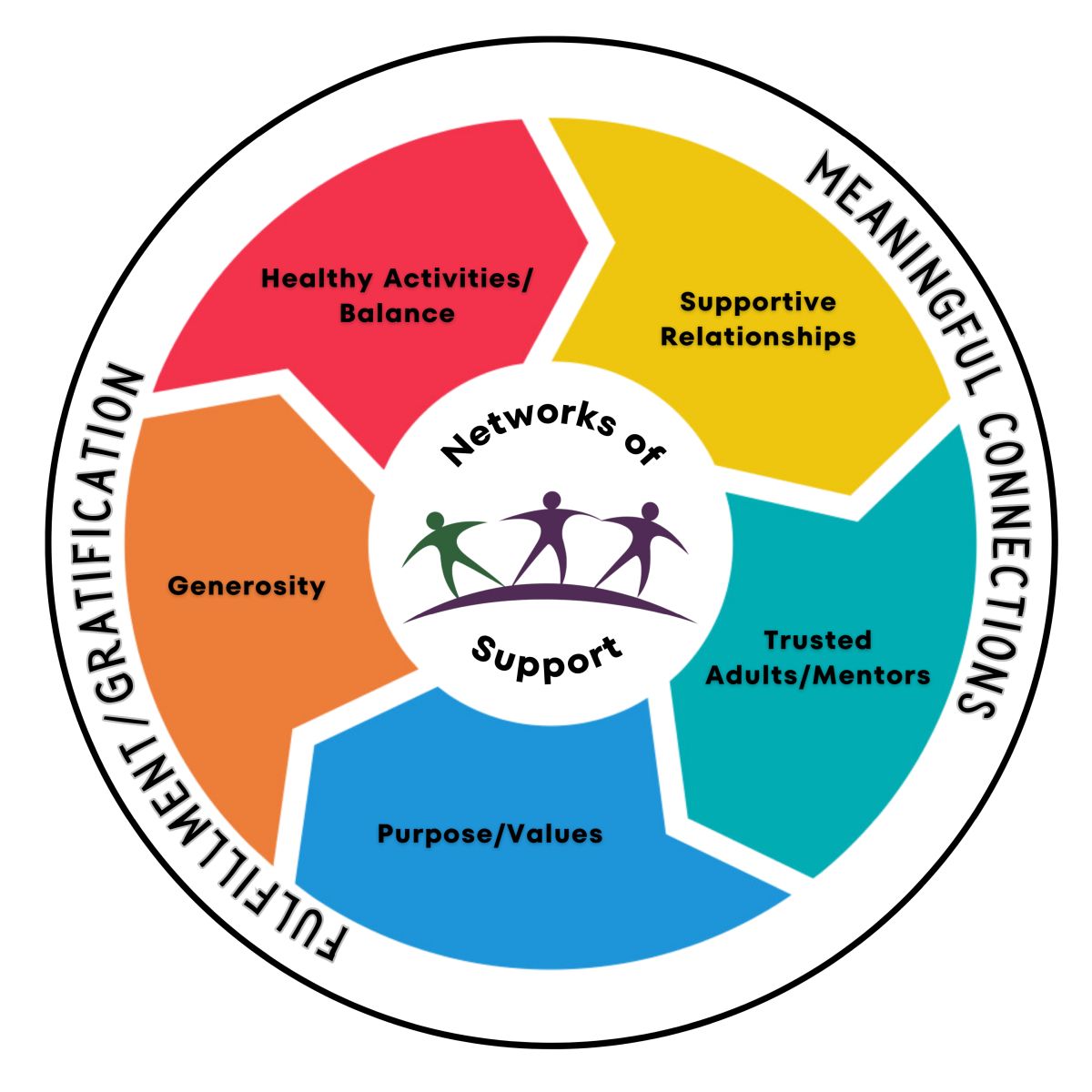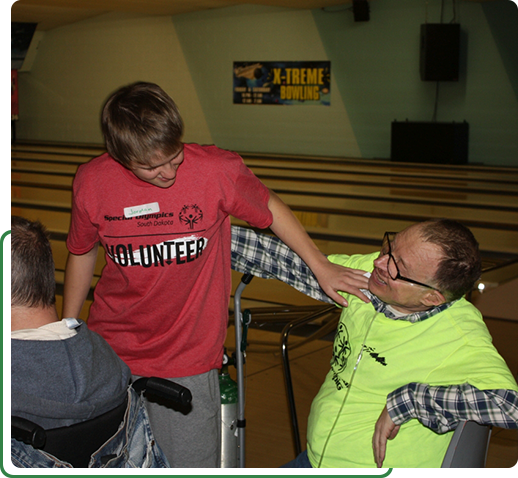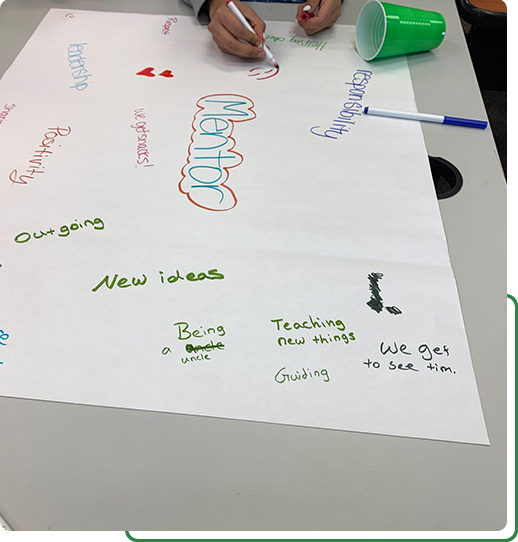

Research has shown that the Networks of Support approach has great potential to develop the personal, social, and academic growth of the leaders and the students they mentor. There are key components to consider when implementing the NOS Peer Leaders approach. A compiled list of these components is available to guide you. These components can and should be adapted to reflect the needs and expectations of your school. They are categorized into organizational components and training components. It is critical to follow the evidence-based process to develop positive support networks.
Networks of Support’s interactive group design progresses from individual engagement (e.g., each participant shares career goals and values) to building group-level skills and norms (e.g., mapping group strengths). Specifically, participants learn together about one another and model skills to grow and sustain research-validated protective factors through the following core concepts:



Deliberately creating and sustaining a supportive learning environment is critical to shifting norms and to allowing participants to organically connect actions to outcomes. Networks of Support uses an Experiential Active Learning style approach that emphasizes:
This training environment positively influences participant engagement, connectedness to protective guidance relationships, and learning outcomes.
Networks of Support facilitators deliver the training as an active participant, and must develop skills across several dimensions:





